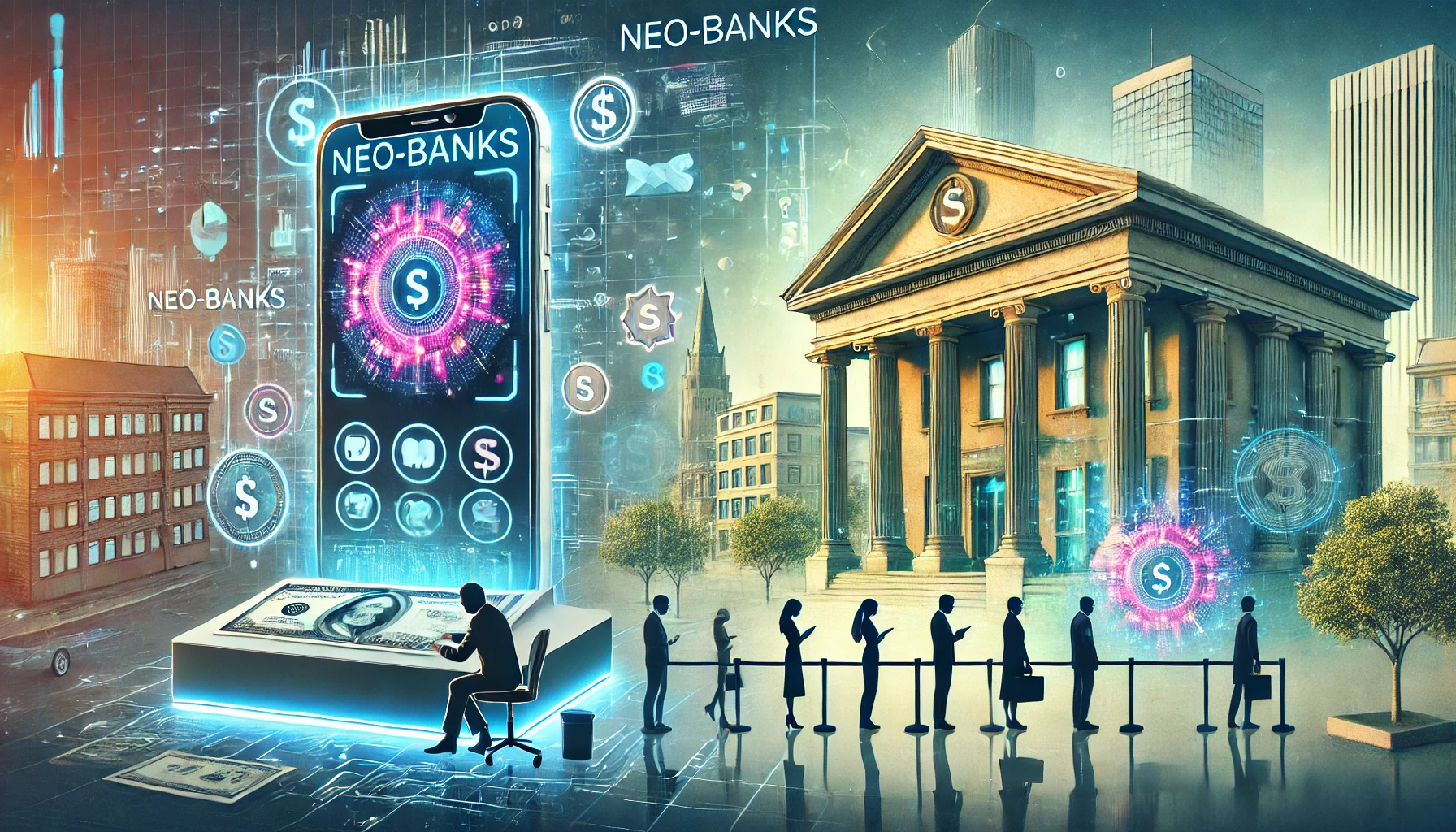The Rise of Neo-Banks: Are Digital-Only Banks the Future of Personal Finance?

Welcome to the Age of Neo-Banks: The Future of Personal Finance?
Remember the good old days when you'd walk into a bank branch, wait in line, fill out a form, and pray that your transaction wouldn't take an eternity? Those days seem like ancient history thanks to the rise of neo-banks. Digital-only banks have swept in, offering sleek, app-based services that you can access from the comfort of your couch. But here’s the big question: are they truly the future of personal finance, or just another tech trend that will fade into obscurity? Let’s take a closer look.
What Exactly Are Neo-Banks, and Why Should You Care?
Neo-banks are digital-only banks with no physical branches. That’s right—no lines, no paperwork, no need to visit a stuffy building. Everything is online and app-based, meaning you can manage your money with just a few taps on your phone. Sounds convenient, right? Neo-banks usually offer a range of services, from checking and savings accounts to loans and even investment options. But the biggest selling point is their tech-first approach. They integrate seamlessly with your financial life, whether you're paying bills, transferring money, or tracking your spending habits.
How Are Neo-Banks Different from Traditional Banks?
For starters, neo-banks tend to offer lower fees—or no fees at all. They operate without physical branches, cutting down on overhead costs. This means more savings for you! Plus, their tech-savvy platforms provide a user experience that’s leagues ahead of many traditional banks. We're talking about instant notifications, real-time spending analysis, and AI-driven insights that help you manage your finances better. Traditional banks have tried to catch up with their own apps, but let’s be honest: navigating those clunky apps can feel like trying to solve a Rubik’s Cube with your eyes closed.
Security Concerns: Are Neo-Banks Safe?
Sure, neo-banks sound great—but are they safe? This is where things get serious. Neo-banks are heavily regulated, just like traditional banks, and most of them are insured by FDIC or equivalent organizations. However, it’s important to check whether your chosen neo-bank is covered. While the convenience of neo-banks is undeniable, some people still feel uneasy about entrusting their entire financial life to a virtual entity. With cyber-attacks becoming more sophisticated, security is a top priority, and neo-banks know that. They often employ advanced encryption methods and multi-factor authentication to protect your funds. But as with anything online, there's always a small risk, so staying vigilant is key.
Are Neo-Banks the Future of Personal Finance?
Now, the million-dollar question: are neo-banks the future of personal finance? Well, it certainly looks that way. According to recent reports, the number of neo-bank users has skyrocketed, and traditional banks are scrambling to compete. With younger generations preferring the ease and convenience of digital banking, neo-banks are positioned to become the norm rather than the exception. Their focus on personalized user experiences, low fees, and advanced technology gives them a serious edge. However, they still have hurdles to overcome, such as building trust with older generations and navigating ever-changing financial regulations.
Final Thoughts: The New Normal or Just Another Tech Fad?
Neo-banks have clearly shaken up the financial industry, challenging traditional banks to up their game. While it’s hard to say for sure if they will completely replace traditional banks, one thing is certain: neo-banks are here to stay. Their simplified, tech-first approach to banking is revolutionizing personal finance in ways that few could have imagined even a decade ago. If you’re tired of dealing with outdated banking systems, a neo-bank might just be the fresh start you need. But here’s a question for you: would you trust a digital-only bank with your life savings, or do you still prefer the security of a traditional bank?



